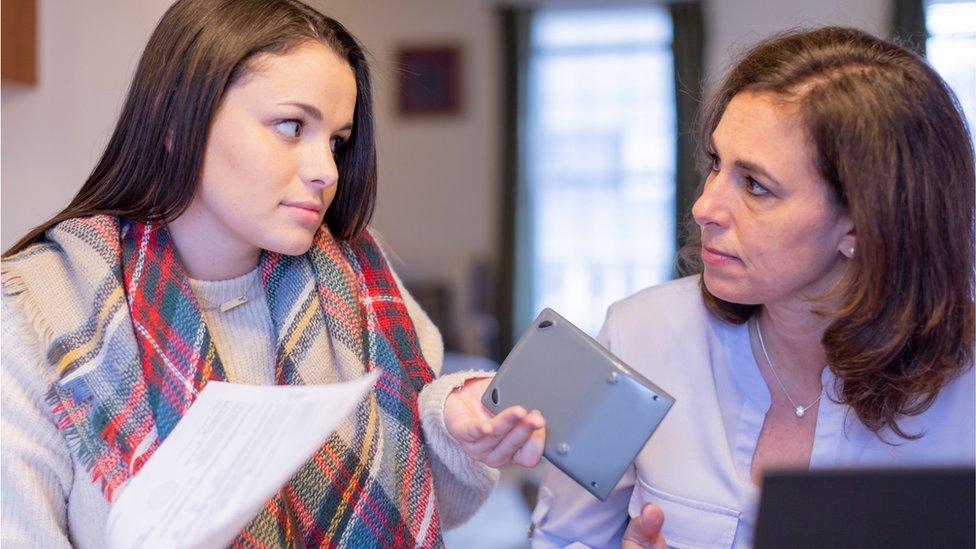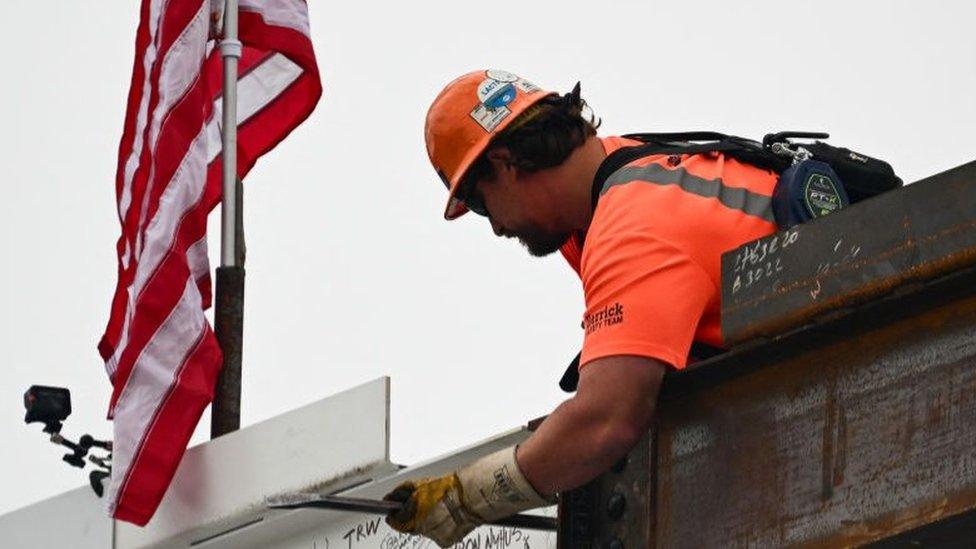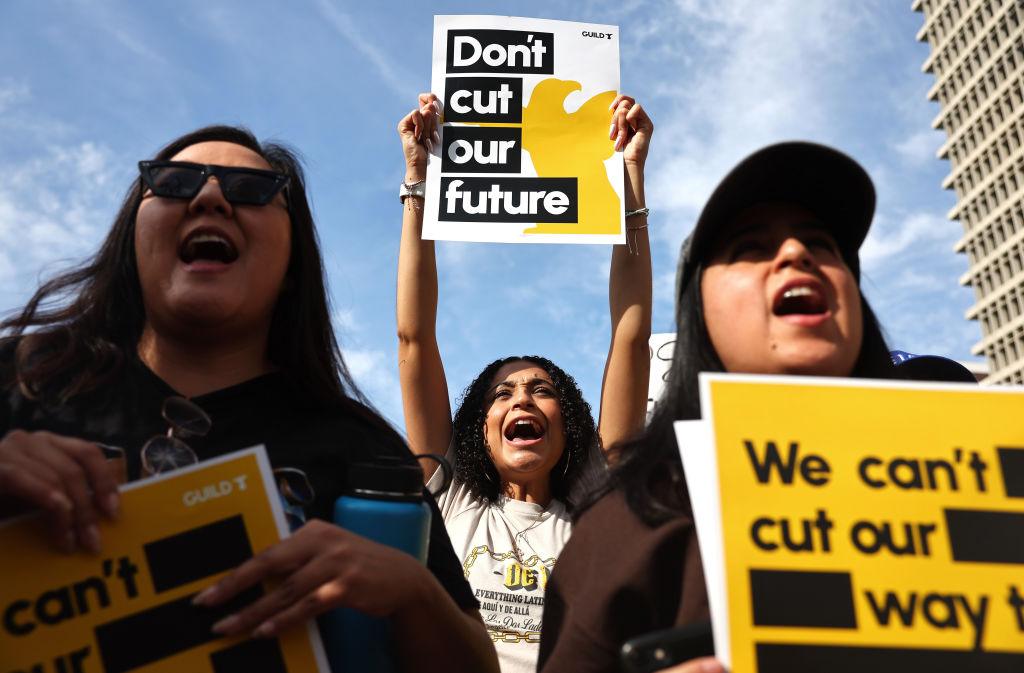US millennials, Gen Z need parents' help to pay household bills
- Published

Young Americans have a hard time paying all their bills, and they are often turning to their parents for help, according to a new Pew report.
The survey shows fewer than half of Americans aged 18-34 think themselves completely financially independent.
Nearly half said they were given money by their parents, most often to help defray household costs.
Still, the vast majority are confident they will no longer need help at some point in the future.
Here are some of the report's key takeaways.
Young adults have it better- and worse - than their parents did
Young adults in the US today are more likely to be employed full-time and better educated than they were 30 years ago.
But that seems to be where some of their financial issues come into play. As a whole, young Americans have seen modest wage increases and much greater student loan debts over the past three decades.
The share of people in their early 30s with outstanding student loan debt has more than doubled over that period, and the numbers are sharply rising for those in their 20s, as well.
Housing is also a growing issue, and is a burden that often requires financial help from parents, Pew's survey says.
There appears to be good reason for that help: Americans under 35 who are buying homes are having to carry much more debt than they did 30 years ago - at least $60,000 more when adjusted for inflation.
Getting help from mum and dad, and also delaying a big step
Parents are helping their adult children in ways both big and small.
Most are pitching in to cover young adults' household expenses, mobile phone bills and even subscriptions to streaming services.
About a third of young adults are also electing to live at home, with most saying it has helped them financially.
Almost one in five Americans in the 30-34 age group need parental help to pay household bills.
Pew found that 75% of young adults believe they will "eventually" become financially independent of their parents, but the survey group did not ask for an exact timeline.
The financial pressures are also keeping the age group from making the financial leap of starting families.
Half of people in their late 20s were married in 1993. That number today is closer to a quarter.
The survey shows that may have had an effect on whether those Americans under 35 were willing to have a kid, as that number has shrunk dramatically, as well.
Some parents are having a tough time, too
More than a third of parents, especially those from lower incomes, said they had hurt their own financial situation by helping their kids.
At the same time, 14% of all parents said they had received help from their young adult children, either for a one-time expense or a recurring cost. That number swelled to 29% for parents with lower incomes.
Many children living at home often pitch in, as well, with nearly three-fourths helping with the rent or mortgage or with household expenses like groceries.
Related topics
- Published25 January 2024

- Published23 January 2024
